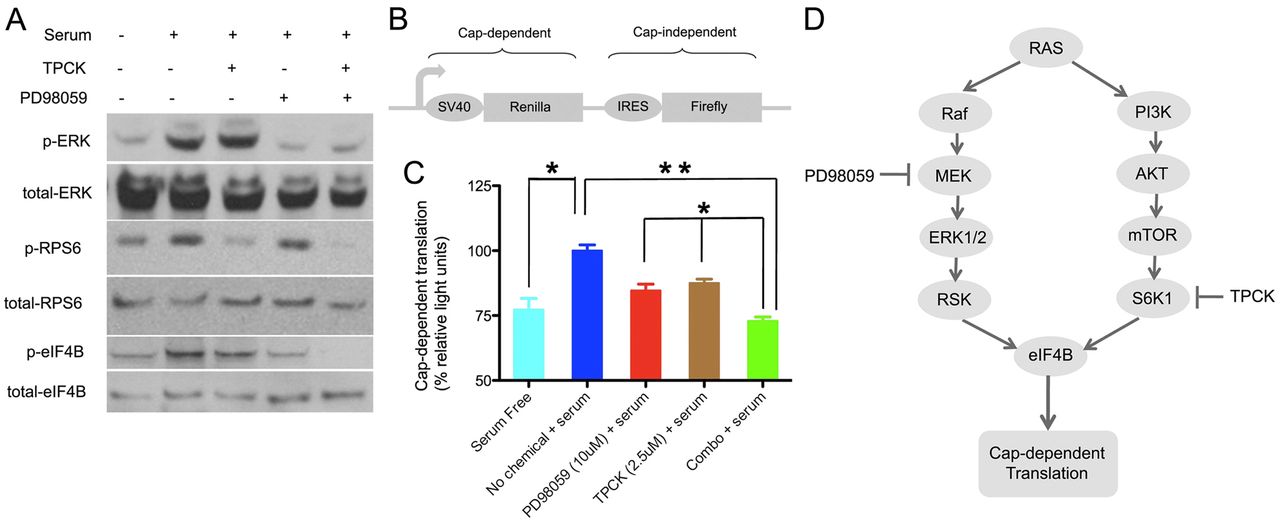Fig. 7 The combination of PD98059 and TPCK suppresses eIF4B phosphorylation and cap-dependent translation initiation. (A) Human RD cells were deprived of serum overnight, treated with vehicle [0.53% (v/v) DMSO], PD98059 (10 μM), TPCK (2.5 μM) or a combination (10 μM PD98059 and 2.5 μM TPCK) for 2 hours, and then stimulated with serum (20%), or continued to be serum-starved, for 30 minutes. The phosphorylation status of ERK1/2 (T202/Y204), RPS6 (S235) and eIF4B (S422) was then analyzed by western blotting. (B) Structure of the bicistronic Renilla/firefly luciferase reporter plasmid used in the translation assay. (C) Cap-dependent translation in chemical-treated RD cells. RD cells were transfected with the reporter plasmid, after serum starvation for 12 hours, and then treated with control, PD98059, TPCK or a combination. Half an hour after chemical exposure, serum (20%) was added to cells to stimulate translation, luciferase activities were measured, and the Renilla/firefly luciferase light unit ratio was calculated. The value of the serum-stimulated sample was set at 100%. The experiment was performed in biological duplicate and technical triplicate. *P<0.05, **P<0.01 (Student′s t-test). Error bars indicate s.e.m. (D) Proposed mechanism of suppression of translation initiation in tumor cells. MAPK/ERK and AKT/S6K1 are two major signaling pathways downstream of RAS. Blockage of both pathways results in effective suppression of eIF4B phosphorylation and inhibits translation initiation in proliferating tumor cells.
Image
Figure Caption
Acknowledgments
This image is the copyrighted work of the attributed author or publisher, and
ZFIN has permission only to display this image to its users.
Additional permissions should be obtained from the applicable author or publisher of the image.
Full text @ Development

